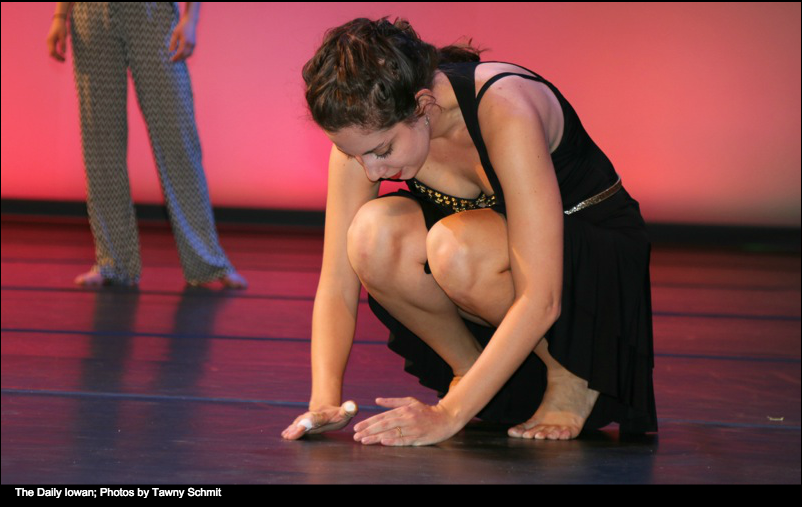Strub’s show, “Rhythm Unbound,” conveys the relationship of Parkinson’s and dance, and Reed’s piece, “Hattie May’s Juke Joint,” celebrates the African-American juke-joint culture. Subjects separated by time and circumstances unite through this medium.
“Dance is something people can relate to, because in one capacity or another, we all move,” Reed said. “These are two common things that we do in our lives that are not abstract.”
The setting of Reed’s concert is anything but abstract. At the height of the Civil Rights Movement, his protagonists, Betty and John, a young interracial couple, find solace in a juke joint. While racism rages outside, inside, the music is loud, dance is loose, and drink flows.
For research, he trekked to southern Louisiana, touring famous establishments.
“The atmosphere there had the quality of preserving the African culture, and the appearance was not commercialized,” Reed said. “The concern was not what it looked like; the experience was about the social and communal engagement inside.”
While classic R&B ballads guide the motion, the struggles of his script transcend the time period.
“We live in a country that has made strides in race relations, but we are still dealing with it in contemporary terms,” Reed said. “I’m hoping this relationship can initiate a dialogue.”
Its companion piece, “Rhythm Unbound,” presents its own dialogue: the restorative nature dance has for Parkinson’s patients.
“In Parkinson’s, people become comfortable isolating themselves because they don’t have to worry about how their tremors look,” Strub said. “But dance works against that isolation and helps them access rhythmic parts of the brain.”
Click here to check out a photo slideshow.
Enter Cedar Rapid’s PD Dance Moves, a dance class led by Strub. Each session affords the members a rare autonomy, teaching their deteriorating bodies new rhythm and control. This class became crucial to “Rhythm Unbound,” her dancers even engaging in sessions.
“In the past, when I’ve done my pieces, all I can do is listen to the choreographer and try to move from their directions,” said dancer Ashley Kostelnik. “It was easier to find my character and follow the story because I could step into that classroom.”
As her show’s research progressed, so did the importance of the PD Dance Moves members. With that realization, Strub began to incorporate them into “Unbound,” including class member John Ryal, who will dance and sing the ballad “It Had to be You.”
“I’m symbolically someone’s father, someone’s brother, someone you know,” he said.
A year into his diagnosis, the studio and stage are a source of strength.
“I think it’s easy to feel labeled when you have a disease that’s so visible like Parkinson’s,” Strub said. “For them to be here dancing on their own, and then to have an audience see that, is huge for their confidence and courage.”
Like Reed’s Betty and John, dance is tool to overcome disparities and retain humanity.
“I want the audience to be empathetic and sympathetic but not sad, because we’re not sad people,” Ryal said. “When we come together in our classes, there’s only joy and hope.”
DANCE
Restoration: Moving to the Beat of Life
When: 8 p.m. Today-Saturday
Where: North Hall Space/Place




